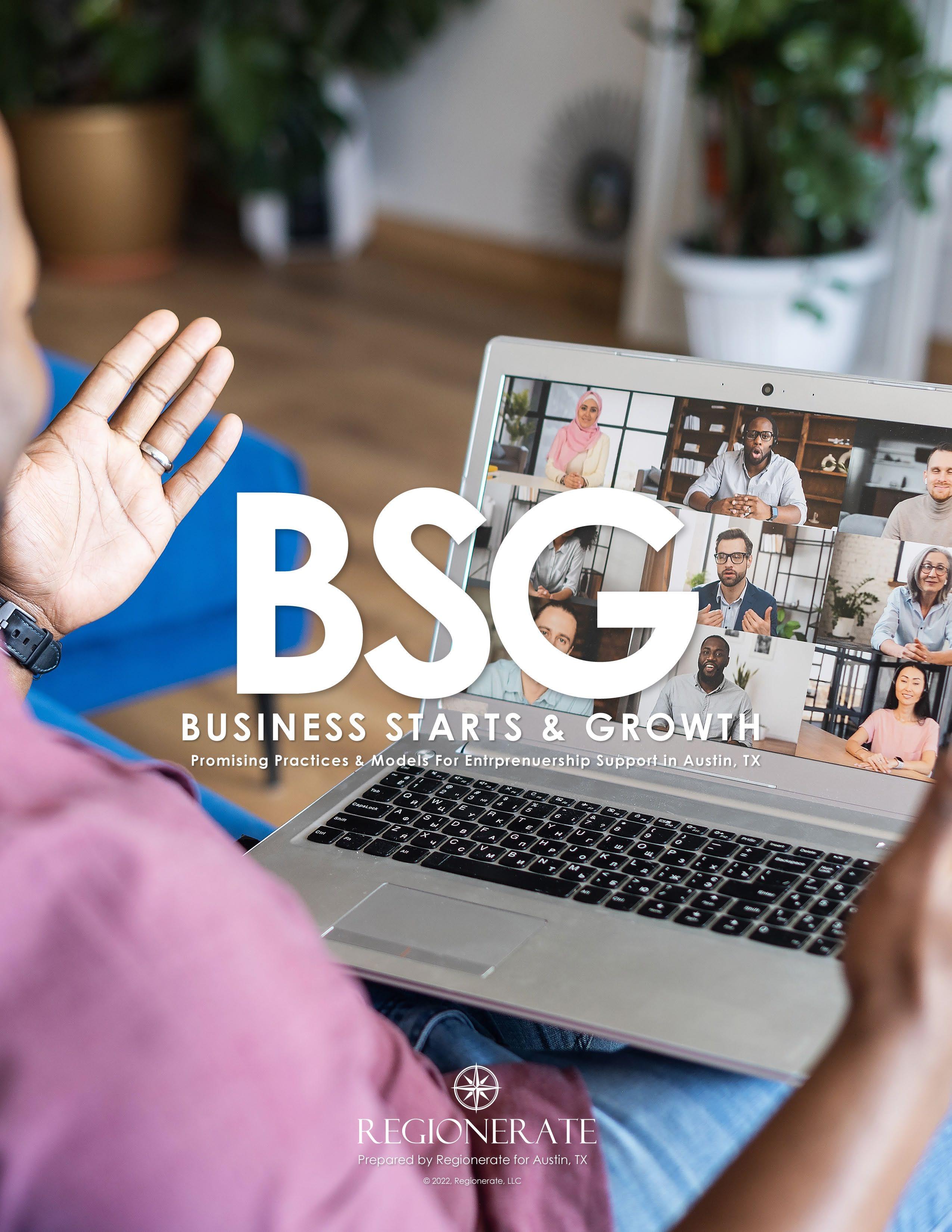
Background and Introduction
Austin has requested that Regionerate provide them with promising practices and models for entrepreneurship support to inform their workplan. This report includes examples from direct engagement with such programs and other peer reviewed models that have served as benchmarks for our clients.
Over the years, many businesses have consistently told us that the service providers they find most useful are the ones that don’t simply point them toward information but also help them to collate and synthesize the overlapping and often conflicting details of the various programs that businesses can take advantage of (e.g., hiring, real estate, tax abatements, and technical assistance).
Business owners report that the lack of a one stop service provider, or a front door to an array of providers, made multiple managing relationships difficult. And the absence of an organization that acts as a case manager, helping broker introductions and connections for each business, seems to mean that fewer growing businesses get connected with available specialty services from which they might benefit.
Small but growing businesses are often challenged by the availability of appropriate business support at the proper time in their businesses’ trajectories. In other words, “one size does not fit all.” They have grown beyond the need for start up assistance that is often widely available from many economic development agencies.
On the other hand, these businesses are not yet big enough to take advantage of traditional real estate and tax incentives that many cities provide large scale producers. Firms in the middle, who fall into neither camp, often struggle to find, and connect to practical advice for their growth but still nascent businesses.
Even cities and organizations that cater to this group have trouble reaching those business owners, who are often fully engaged with the day to day running of their firms and are challenged to find, research, and take advantage of business support services.
Regionerate has served small business startup and support programs and organizations in several overlapping roles program design, growth strategy, accelerator operations, mentoring, evaluation, and financial sustainability.
2
Table of Contents
Model 1: Flanner House Ujamma Community Bookstore ..................................04
Model 2: Prosper Us Detroit ...................................................................................05
Model 3: TechTown Detroit ...................................................................................06
Model 4: SBDC | Urban Business Growth Initiative Program .............................07
Model 5: Urban Innovation21 | Riverside Center for Innovation .....................08
Model 6: SDBCC | Urban Business Resource Center Accelerator ...................09
Model 7: Founders First CDC .................................................................................10
Model 8: Interise | Boston, MA ............................................................................11
Model 9: ALCAB's National Latino Entrepreneurship Program ..........................11
3
Model 1: Flanner House Ujamma Community Bookstore
A current client of Regionerate is Flanner House in Indianapolis, IN. The 125-year old organization is a one stop center for children and families in the surrounding BIPOC community. In addition to childcare, senior care, urban agriculture, and workforce development, Flanner supports local entrepreneurs of color through the newly renovated Ujamaa Community Bookstore
They sell books and allow artists and creatives to use the space for
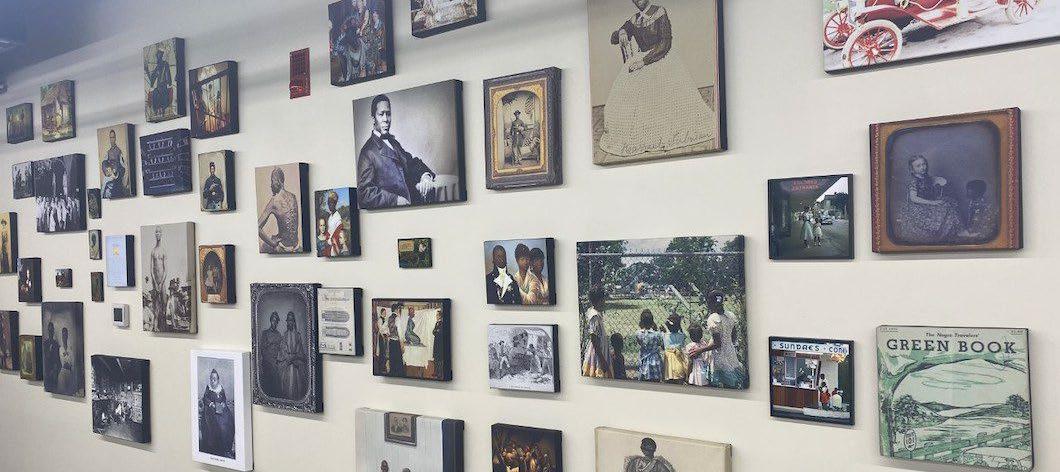
performance and pop up retail. The bookstore is an excellent place for the community to gather for special events celebrating its neighbors' cultural identity. The artists/vendors do not pay a fee to display their products, but they work part-time in the bookstore to reduce overhead costs This program lessened the risk of investing in bricks and mortar because they could test their products in the marketplace without paying rent.

4
Learn More at: www.facebook.com/ujamaacommunitybookstore
Model 2: Prosper Us Detroit
Over the last decade, Regionerate has worked closely with several of New Economy Initiative’s grantees in Detroit focused on micro businesses. Prosper Us is one of those programs. It provides entrepreneurship training and support programs serving underrepresented populations in Detroit. It partners with other neighborhood focused organizations supporting residents in their community to start businesses Prosper Us provides initial entrepreneurial training and business plan development and coaching. After completing the program, Prosper US provides post training coaching and ongoing support services. Some of the graduates also receive microloans from local CDFIs.


Prosper Us partners with other organizations to provide accurate information about ownership of a prospective commercial space, cost to address code deficiencies, zoning regulations, consumer demand for goods and services, safety concerns, and other issues that might impact the business. They also broker other resources such as (1) financial fitness workshops; (2) legal and technical assistance workshops regarding incorporation, employment law, intellectual property, and real estate basics; and (3) workshops about how community development
Learn More at: www.prosperusdetroit.org
corporations (CDCs) can better support neighborhood businesses and how businesses can better take advantage of support from CDCs.
A significant learning from this program is the importance of providing pre- and post loan technical assistance for new businesses. Another key finding was the importance of lines of credit for new entrepreneurs with purchase orders. Many small businesses needed to buy supplies and hire staff before starting a contracted service, and they had no cash flow.
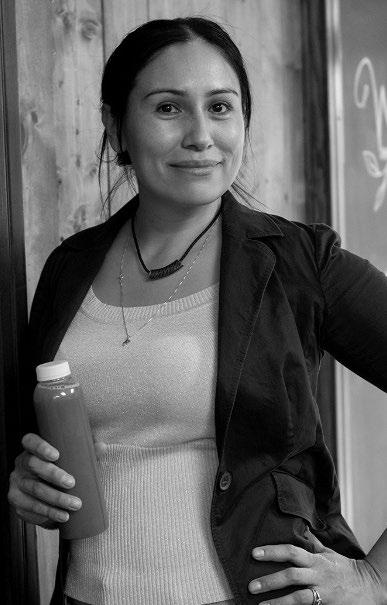
5
Model 3: TechTown Detroit
Regionerate was hired to help Tech Town Incubator at Wayne State University in Detroit, Michigan raise funds from diverse sources to support their urban business programs Along with traditional business acceleration offerings and coworking space, TechTown offers a Retail Boot Camp, a program to prepare entrepreneurs for the successful launch of their retail businesses. Entrepreneurs meet weekly for eight weeks for workshops and mentoring sessions facilitated by business development and retail experts.
SWOT City Detroit Program (SWOT) at TechTown combines neighborhood engagement efforts with local business owners and

entrepreneurs to create jobs for low income individuals in target neighborhoods. TechTown provides neighborhood assessments, technical assistance, coaching, entrepreneurial services, and training to businesses, residents, and other stakeholders and has its business coaches located in community centers across the city.
SWOT was launched in 4 of Detroit’s neighborhoods and was so successful that JPMorgan Chase funded its replication throughout the city. Doing triage for neighborhood businesses allowed Tech Town to prioritize its offerings to the companies considered the most critical for neighborhood growth.

6
Lean More at: www.techtowndetroit.org/programs/#entrepreneurialeducation
Model 4: SBDC | Urban Business Growth Initiative Program

Regionerate has supported several program offerings of the University of Missouri Kansas City Small Business Development Center, including its Urban Business Growth Initiative (UBG). UBG programs bring together resources within the community to support urban business growth and accelerate and enable the development of companies from early to late stages. Through the SBDC hosted program, entrepreneurs can access any of the components they need to start or grow their business:
A key role for partner provider organizations is reaching out to the community to make these resources visible and accessible. Resource navigators act as a central clearinghouse for the program. Business owners may enter the pipeline through partner organizations; all partner organizations use a common approach to assessing needs and making referrals.
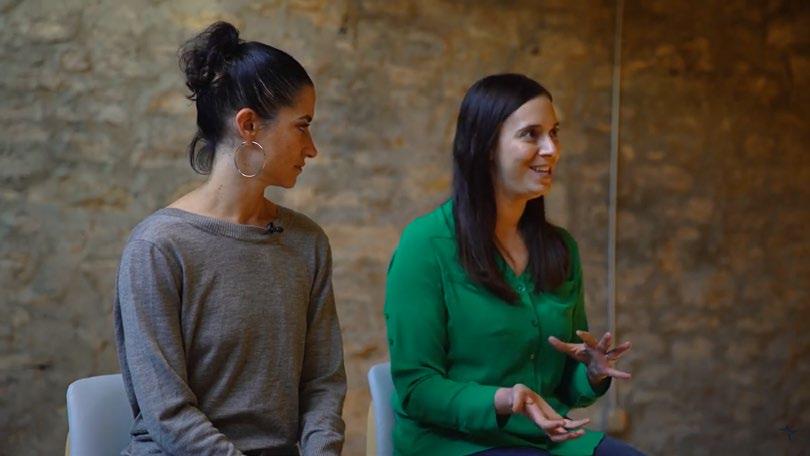
Clearly, culturally embracing navigators were needed at the community level to introduce entrepreneurs to the existing programs and resource providers. It helped if the partner organizations had broad awareness of the current ecosystem to support all companies, especially BIPOC businesses. Learn

7
3.
4.
5.
1. Outreach and Awareness 2. Credit-Building Tools
Training and technical assistance
Ongoing counseling and technical assistance
Financing
More at: www.sbtdc.umkc.edu
Model 5: Urban Innovation21 | Riverside Center for Innovation
Regionerate consulted with Urban Innovation21 (UI21) to support BIPOC entrepreneurs in the Hill District of Pittsburgh. UI21 is now partnered with Riverside Center for Innovation, working to grow the city’s economy while connecting that economy to underserved communities and the residents that live in those communities.
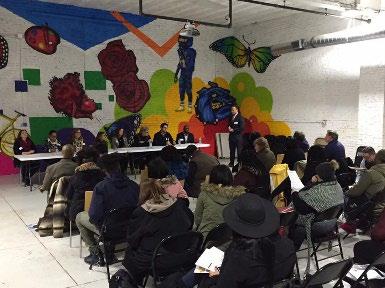

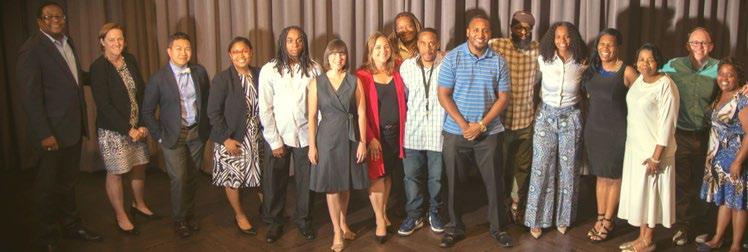
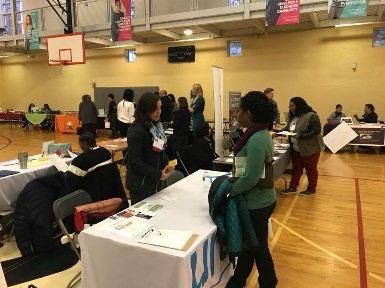
The program offered four one hour workshops on what it means to start a business in the community at flexible times to accommodate many schedules. At the end of the series, interested individuals wrote a short application about their business idea, and a team of outside reviewers chose six entrepreneurs per semester.
Each business received $5K for new businesses or $10K for existing businesses. These stipends were grant dollars supplemented with pro bono legal advice, accounting expertise, and other professional services. Other wrap-around services included c ontract procurement, access to capital, human resource guidance, financial management, and networking assistance.
Lessons learned from this client include the need to go deep with a smaller number of entrepreneurs if they are going to be sustainable and profitable. Another critical factor in the program's success was introducing the businesses to their first, second, and third customers.
8
Learn More at: www.riversidecenterforinnovation.com
Model 6: SDBCC | Urban Business Resource Center Accelerator
Regionerate worked with the County of San Diego Black Chamber of Commerce to write a grant to standup a new business accelerator for Black businesses of all sizes and types. We now deliver programming to two cohorts per year.
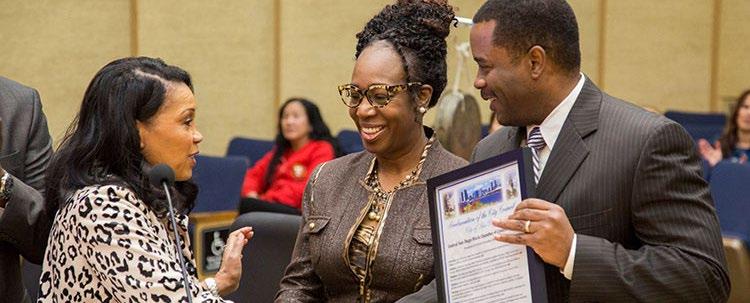
They attend 90-minute classes on various topics, including ideal customers, value propositions, branding and marketing, operations, financial fitness, investor readiness, and how to get into corporate supply chains.
business basics taught by regular facilitators. We encourage Black Chamber members to mentor businesses in their respective sectors.

The semester culminates in a graduation ceremony where the businesses present a 3 minute pitch to potential customers and investors. The key to the success of this program has been providing live case studies of BIPOC companies whose founders have shared their journeys, including failures and successes.
The curriculum is not off the shelf but very customized based on the most critical needs of the cohort. Learn More at: www.sdblackchamber.org/ubrc
The program offers additional one on one coaching every week and brings in a series of subject matter experts to supplement
9
Model 7: Founders First CDC
Regionerate continues to work with Founders First CDC to articulate its program impacts and grow its reach from headquarters in San Diego to 5 parts of the country. The accelerator helps under-served and under represented small business owners overcome the challenges they face due to the lack of access to capital and to assist them in increasing business capacity.
This accelerator utilizes a revenue financing model that is non dilutive and offers growth strategies based on the stage of business. Their three primary programs include (1) Challenge Program, for companies generating $50K to $250K, offering online training, one on one coaching, and resulting in a funding and growth plan; (2) Founders Business Growth Bootcamp, for companies generating $250K to
Learn More at: www.foundersfirstcdc.org
$1M, building a custom playbook to grow their business to be more profitable, scalable, and employer based; and (3) Founders FastPath Program for businesses generating over $1M, that kicks off with a 4-day on site experience and concludes with a 3 year growth simulation, firsthand access to C level mentors and up to $1M in growth capital.
The participating business owners average 25% year-after-year growth, creating at least two jobs annually with average salaries of $50,000.
Founder’s First is successful because it targets segments of businesses by revenue and provides a tailored and varying level of support for each one. It is one of the few programs in the nation that does not take equity or burden the company with debt with its venture financing.

10
Model 8: Interise | Boston, MA
Interise offers The StreetWise ‘MBA’™, a nine-month program for entrepreneurs with graduates earning a certificate in Small Business Entrepreneurship from Boston University's Entrepreneurial Management Institute
The program has been growing since its launch in 2004. The program started in Boston and has been replicated across the state and in other regions of the country, such as Grand Rapids, MI.
The program is more appropriate for businesses that want to scale. They have 80 national network partners and a small business resource center online that offers relevant articles, research papers, and toolkits that Austin could leverage for its BSG.
Learn More at: www.interise.org/small business resource center
Model 9: ALCAB's National Latino Entrepreneurship Program, National
The network of over 100 community and economic development organizations includes more than 40 local small business serving organizations focused on Latinx founders and businesses.
NALCAB's member organizations support small business owners on a local or regional level in multiple ways: (1) through small business training and technical assistance, (2) by increasing access to capital and building credit through micro lending, and (3) by creating access to markets by developing commercial corridors, incubators, and public markets.
NALCAB provides pass through grants to nonprofits to enhance local small business success. Some programs include small business technology training for Latinx entrepreneurs, including QuickBooks and bilingual curricula.

Learn More at: www.nalcab.org

11





























